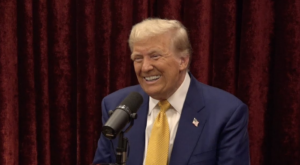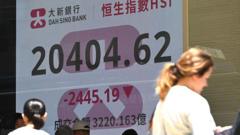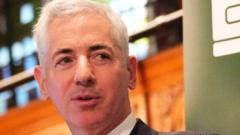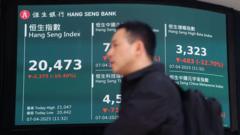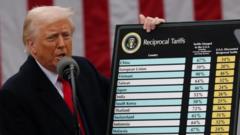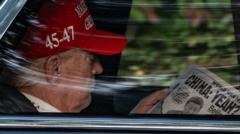Amid escalating trade tensions, Vietnam's leader To Lam has requested the United States to delay a proposed 46% tariff, expressing concern for economic impacts and advocating for dialogue.
Vietnam's Leader Calls for Delay on Trump's 46% Tariff Proposal

Vietnam's Leader Calls for Delay on Trump's 46% Tariff Proposal
Vietnam's top official urges President Trump to postpone steep tariffs, emphasizing economic ties and potential repercussions for both nations.
Vietnam's Prime Minister To Lam has reached out to President Trump, advocating for a 45-day delay on the proposed 46% tariffs that could severely impact Vietnam's economy and American consumers. Historically, Vietnam has built a strategic partnership with the U.S., making this tariff announcement particularly startling.
In correspondence obtained by the New York Times, Lam emphasized the urgency of halting the tariffs, stating that such a drastic measure would not only cause economic distress for Vietnam—a country that derives approximately 30% of its total exports from the U.S—but it also raises the risk of inflationary pressures in the American market.
In his communication, Prime Minister Lam also suggested appointing a U.S. representative to collaborate with Vietnamese officials, including Deputy Prime Minister Ho Duc Phoc, to expedite negotiations for an agreement beneficial to both countries. During a previous phone call, Lam offered to eliminate tariffs on U.S. imports and encouraged reciprocal action from Trump, describing their exchange as "productive."
Given the context of recent U.S.-Vietnam relations, where Vietnam was viewed as a counterbalance to China's influence and a key player in the manufacturing landscape for U.S. apparel brands, the proposed tariffs come as a surprising departure from their collaborative trajectory. Economists warn that the implementation of tariffs could destabilize Vietnam's economy, risking around 5.5% of its GDP if analyzed through the lens of its manufacturing and export sectors.
The letter further proposes a face-to-face meeting between the two leaders in Washington towards the end of May, intending to foster peace, stability, and development not only between the two nations but also regionally. As the situation develops, the Vietnamese Foreign Ministry has yet to make an official comment on the matter. With Vietnam's economic stability hanging in the balance, the outcome of these negotiations remains closely monitored by both nations and the global economy at large.
In correspondence obtained by the New York Times, Lam emphasized the urgency of halting the tariffs, stating that such a drastic measure would not only cause economic distress for Vietnam—a country that derives approximately 30% of its total exports from the U.S—but it also raises the risk of inflationary pressures in the American market.
In his communication, Prime Minister Lam also suggested appointing a U.S. representative to collaborate with Vietnamese officials, including Deputy Prime Minister Ho Duc Phoc, to expedite negotiations for an agreement beneficial to both countries. During a previous phone call, Lam offered to eliminate tariffs on U.S. imports and encouraged reciprocal action from Trump, describing their exchange as "productive."
Given the context of recent U.S.-Vietnam relations, where Vietnam was viewed as a counterbalance to China's influence and a key player in the manufacturing landscape for U.S. apparel brands, the proposed tariffs come as a surprising departure from their collaborative trajectory. Economists warn that the implementation of tariffs could destabilize Vietnam's economy, risking around 5.5% of its GDP if analyzed through the lens of its manufacturing and export sectors.
The letter further proposes a face-to-face meeting between the two leaders in Washington towards the end of May, intending to foster peace, stability, and development not only between the two nations but also regionally. As the situation develops, the Vietnamese Foreign Ministry has yet to make an official comment on the matter. With Vietnam's economic stability hanging in the balance, the outcome of these negotiations remains closely monitored by both nations and the global economy at large.

